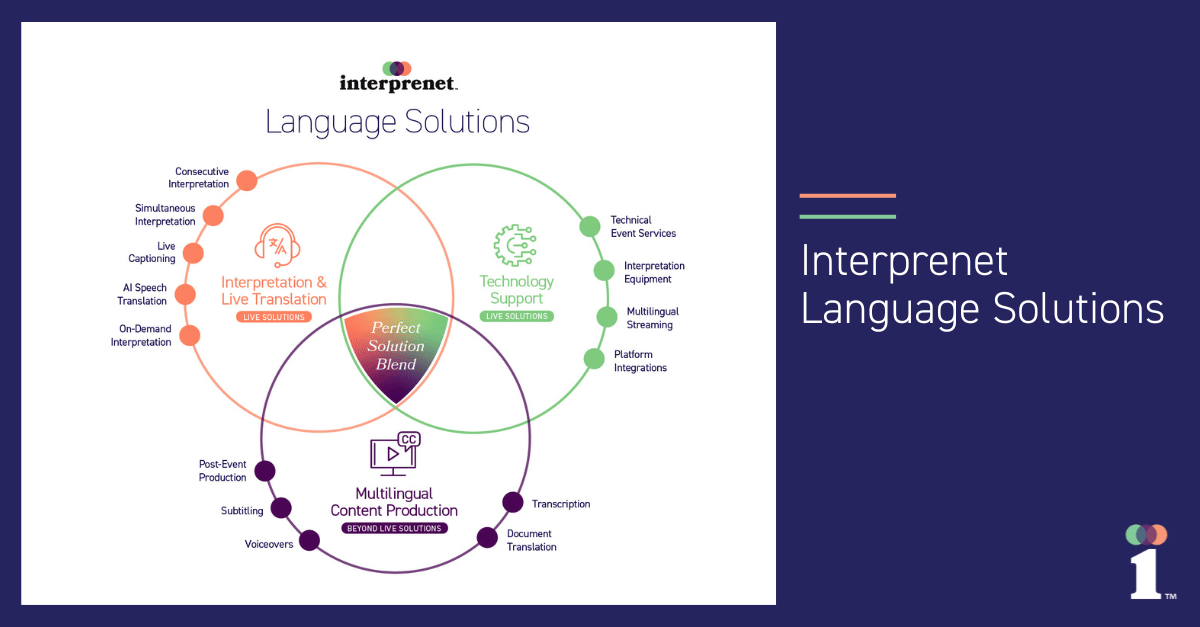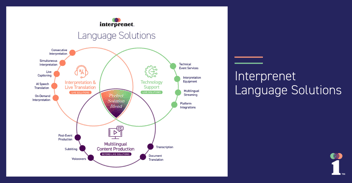
When analyzing the HR trends for 2023 one can't help but notice that diversity, equity, inclusion (DEI) and belonging (DEIB) is going to remain a key topic for businesses as the workforces in North America, Europe and other regions will continue to become more diverse culturally and linguistically.
HR experts expect an increase in the number of multilingual workers given globalization trends such as outsourcing and offshoring. Whether you're working in an international team or with stakeholders in different countries, communicating effectively with colleagues and vendors on different continents is critical to business success!
For organizations that operate only in the U.S., the increase in workers who don’t speak English as a first language will also play a role. Based on an analysis of Census Bureau data released in 2018, the Center for Immigration Studies found that “67.3 million residents in the U.S. speak a language other than English at home. The number has more than doubled since 1990 and almost tripled since 1980.”
Diverse teams can fuel innovation, creativity, and increased productivity - but only if they understand each other. As a recent study by Grammarly and the Harris Poll found out, "Businesses in the U.S. may lose as much as $1.2 trillion per year as a result of communication breakdowns."
That’s why we want to shed light on language services as an important component of a company’s DEIB commitment.
Supporting multilingual employees with multilingual communication
In a workplace where people have different language skills, this linguistic diversity can quickly create communication problems that can cause frustration and possibly a sense of exclusion for an individual. Ultimately, creating a truly inclusive workforce means making people feel that they can receive information and communicate in the language they speak best. By providing materials in the languages spoken by employees, whether it's HR documents, training materials or other critical internal communications, the company can foster a culture of equality and inclusion.
One of our clients is a global insurance company who sought out Interprenet to improve rapport building and communication between their international teams in North America, South America, and Japan. By using our multilingual solutions, including RSI, captioning, and translation, the multinational company has been able to strengthen its internal communications and relationships across continents, positively impacting business results and promoting inclusion.
Communicating your company culture
An example of an HR document that plays an important part in a company’s internal communications is the employee handbook. It is often one of the first documents a new employee receives from HR during their onboarding.
When translated, an employee handbook gives all employees more equal footing from the start. A good handbook familiarizes employees with the company's culture, mission, and values. It’s designed to help new hires understand policies and procedures, including code of conduct and overall safety guidelines. By providing the employee handbook in multiple languages, a company can ensure that all employees understand the expectations and have an equal opportunity to thrive in their new role.
The benefits of multilingual training
Companies with an international workforce or employees whose native language is not English benefit from offering their training in multiple languages. Multilingual training has several positive effects: better education due to a clear understanding of the training provided, and a sense of equity and inclusion because people are met where they are.
The options are plenty:
- Pre-recorded training videos can be provided with recorded interpretation overlay or multilingual subtitles
- Training manuals can be translated into various languages
- Live training sessions on Zoom or other meeting platforms can be complemented by Remote Simultaneous Interpretation and/or multilingual live captions
For blue collar or grey collar workers whose native language is not English and who are among the 2.7 billion deskless workers globally, multilingual training that includes a multilingual audio-visual element accessible via their mobile device is particularly useful.
Managing a feedback culture in multiple languages
To maintain an effective feedback culture in a multilingual workforce, all employees must be given the opportunity to express their feedback and concerns in the language they speak best. This helps foster a “speak-up” culture, as it minimizes the risk of being misunderstood.
The most difficult conversations in the workplace tend to be those that require the highest level of language proficiency. HR can help by establishing a multilingual ethics hotline and working with a language services provider that can adhere to strict security and confidentiality standards.
Accessibility Services
Beyond the benefits of using language services to accommodate the linguistic diversity of the workforce, providing accessibility services such as American Sign Language (ASL) in internal communications or ASR captioning to support hard of hearing or deaf employees is an important part of an organization's DEI strategy. At Interprenet, we offer these services to our clients as part of our Language Solutions Ecosystem.
Increasing employee retention by not leaving anyone out
Comprehension and multilingual options in internal communications help foster a sense of belonging and create equity. HR teams know that DEI is not only a multicultural and multilingual commitment, but also a business strategy. The more people feel they belong, the more likely they are to stay with the company longer.
“Retention will become the new ball game,” writes William Vanderbloemen, founder of executive search firm Vanderbloemen, in this Forbes article. “The best way to avoid hiring costs is to keep good people around a little longer. I’ve learned the hard way that losing good people is costly, and painful, and slows a company's momentum.”
And Julie Kratz, who facilitates inclusive experiences at work, writes in her LinkedIn article, “The Great Resignation and “quiet quitting” are far from over. To keep good people, find out why people are leaving and design work with the purpose to center belonging.”
👇



